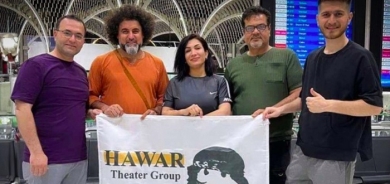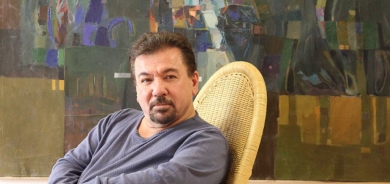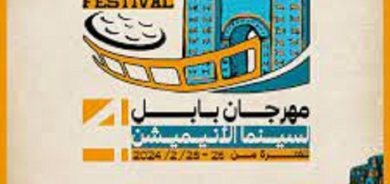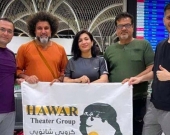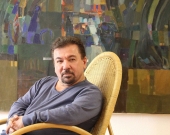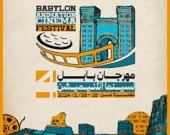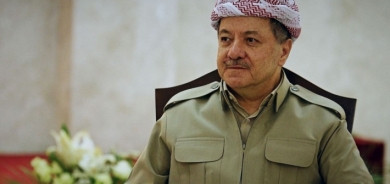The risky craft of being an artist in Afghanistan

Over the decades, he has performed concerts for monarchs, communists and warlords, been threatened with arrest and forced into exile. He has no idea what will come next when America and its allies leave.
"All the people are worried and I am too. We were relaxed and comfortable, life in our homes and work was going very well. But when these [foreign troops] withdraw I am not sure if they will still support us," he said.
While much of society here has continued to suffer since the 2001 US-led invasion, artists have undoubtedly benefited from an era that has witnessed significant gains in freedom of expression.
Many of them now wonder if that progress is sustainable. Even in Kabul there are signs of a gradual return to the more conservative and politically fraught past when everyone from painters to poets faced grave risks simply because of their work.
Amruddin first played the dilruba as a child and was soon hired as a musician by what was then Afghanistan's only national radio station. Unlike some of his colleagues, his career prospered during the Soviet occupation of 1979 to 1989 and the civil war that followed.
But after moving to the northern city of Sheberghan, his willingness to perform for just about anyone eventually proved his undoing. Music was banned across the country when the Taliban seized power and most of the instruments Amruddin owned were destroyed.
Worse was to come when the regime discovered he used to stage regular concerts for Abdul Rashid Dostum, a notorious warlord. Fearing arrest, Amruddin tried escaping to Pakistan with a dilruba he inherited from his father. The Taliban briefly stopped him on his journey and deliberately broke the instrument.
"I am [still] angry but because they can kill me now I have pushed my anger into a corner," he said.
Public concerts have become common again in recent years, though not without controversy. One show planned for the southern province of Ghazni was banned last month after local officials reportedly described music as "forbidden.”
Threats are also a fact of life for people who appear on Afghan Star, a TV talent contest for aspiring singers.
Mohammad Qasem Ramishgar, a judge on the program, admitted to being scared by some of the intimidating messages he receives over the phone and internet. But he told GlobalPost that mainstream "fundamentalism" is the real problem, rather than particular insurgent groups.
"In our nation we easily accept the word of a mullah compared to another man," he said.
Although a conservative interpretation of Islam is regarded as the primary challenge to the arts in Afghanistan today, that has not always been the case. Throughout the last three decades of turmoil, a cultural war has been waged alongside the fighting on the battlefield, with all sides in the various power struggles getting involved.
Art was only encouraged during the communist period if it toed the government line, otherwise it was also clamped down upon. Abdul Wasi Rahraw Omarzad, director of the Center for Contemporary Arts Afghanistan, told GlobalPost that was when the current problems truly began.
"The visual arts movement was slow but it could develop. When the Russians came they stopped the movement and said 'make posters and social realism,’" he explained.
"From that time we lost freedom of expression or [the right] to be an individual artist."
Omarzad was jailed for a month in the 1980s for drawing anti-government cartoons. He describes the years since the US-led invasion as the best for the arts that he has known. He admits he has been receiving threats but is reluctant to talk about them in case it frightens others.
"We don't want to think negatively about the situation," he said. "We hope the future will be better."
Just as in previous eras, women with pubic profiles inevitably face the biggest difficulties. In many cases even relatives are unhappy with their fame.
In June 2012, Ghazala Javed, a hugely popular Pashtun singer, was shot dead in the Pakistani border city of Peshawar alongside her father. A second female Pashtun singer, Yasmin Gul, died in mysterious circumstances in Quetta, Pakistan, in 2010. A third, Ayman Udas, was killed in Peshawar in 2009 — allegedly by her brothers.
For Sonia Sarwari, an Afghan film and TV actress in her 20s, the risks are worth taking. She was assaulted in Kabul last year by a man who threw a kind of powder in her eyes in an apparent effort to blind her.
She did not even report the attack to the police because she was sure they could not help.
"We know if the Taliban come back they will kill all of us — the famous people who are on TV — first. Therefore we are worried; not only people working in cinema but all of Afghan society," she said.
Asked if she would carry on acting regardless, she added: "Naturally. I am an Afghan girl and I will not accept failure, so I will continue until my death."
Global Post




